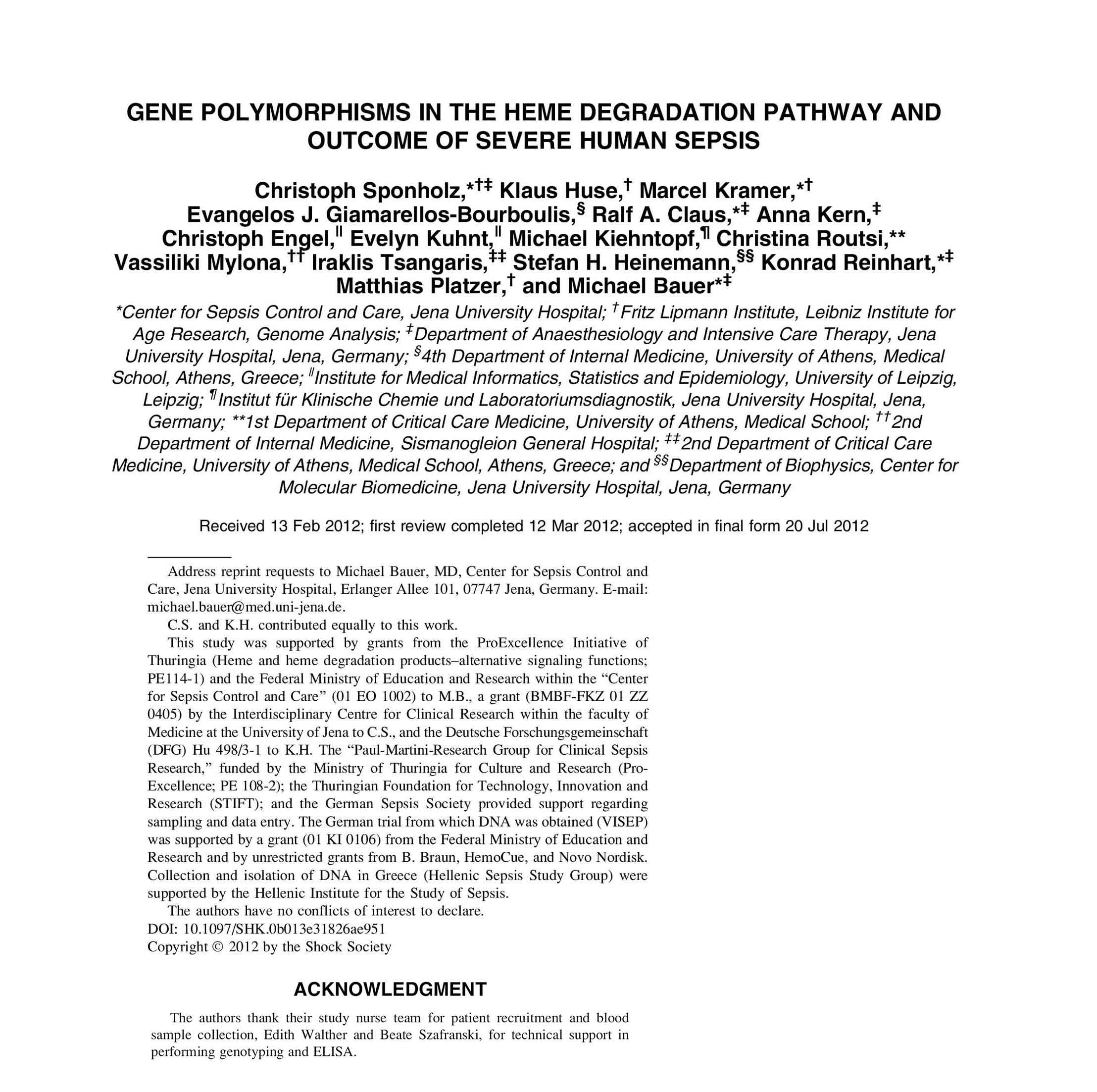Christoph Sponholz, Klaus Huse, Marcel Kramer, Evangelos J. Giamarellos-Bourboulis, Ralf A Claus, Anna Kern, Christoph Engel, Evelyn Kuhnt, Michael Kiehntopf, Christina Routsi, Vassiliki Mylona, Iraklis Tsangaris, Stefan H Heinemann, Konrad Reinhart, Matthias Platzer, Michael Bauer
Shock 2012 Nov;38(5):459-65
DOI: 10.1097/SHK.0b013e31826ae951View article 🡇
Funding
This study was supported by grants from the ProExcellence Initiative of Thuringia (Heme and heme degradation products–alternative signaling functions; PE114-1) and the Federal Ministry of Education and Research within the “Center for Sepsis Control and Care” (01 EO 1002) to M.B., a grant (BMBF-FKZ 01 ZZ 0405) by the Interdisciplinary Centre for Clinical Research within the faculty of Medicine at the University of Jena to C.S., and the Deutsche Forschungsgemeinschaft (DFG) Hu 498/3-1 to K.H. The “Paul-Martini-Research Group for Clinical Sepsis Research,” funded by the Ministry of Thuringia for Culture and Research (ProExcellence; PE 108-2); the Thuringian Foundation for Technology, Innovation and Research (STIFT); and the German Sepsis Society provided support regarding sampling and data entry. The German trial from which DNA was obtained (VISEP) was supported by a grant (01 KI 0106) from the Federal Ministry of Education and Research and by unrestricted grants from B. Braun, HemoCue, and Novo Nordisk. Collection and isolation of DNA in Greece (Hellenic Sepsis Study Group) were supported by the Hellenic Institute for the Study of Sepsis.
Keywords: Heme oxygenase; biliverdin reductase; mortality; organ failure; genotypes; infection

